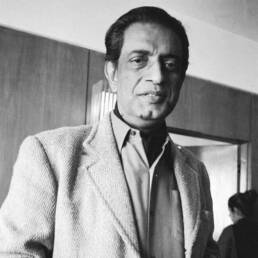As the most awaited tech event of the year kicked off in style, let us look back at how a political leader and freedom fighter from the faraway land of India, inspired the founder of Apple Computer Company, Steve Jobs.
In nearly eight decades of his life, Mohandas Karamchand Gandhi had inspired countless people. Steve Jobs was just another name on that list. So much so that Jobs used to carry a picture of Gandhi in his wallet.
In 1974, while working at Atari, a 19-year-old Jobs visited India in search of spiritual guidance. Upon his return, he announced – “There is no one that embodies better what I want to become, other than Gandhi, he changed the world.”
Job’s learnings came to be tested in 1985 when he was fired from Apple and had to revisit his vision of changing the world of technology all over again. If anything, he had learnt from Gandhi’s life views, it was resilience.
During this turbulent time, Jobs needed Gandhi’s guidance more than ever. He changed his appearance and replaced his old glasses with a pair of circular, wire rim glasses to match the picture of Gandhi he had in his wallet.
His looks somehow made him feel closer to his idol. Eventually, his resilience paid off just like Gandhi’s. The board of directors of Apple reinstated Jobs as the CEO in 1997.
Upon his comeback, together with Rob Siltanen, Jobs launched the “Think Different” ad campaign that had a profound impact on Apple’s future growth and changed the way commercials were made.
The commercial was a collage of clips of many notable personalities like Albert Einstein, Bob Dylan, Martin Luther King Jr, Muhammad Ali and, of course, Gandhi. The voice over in the commercial was given by Richard Dreyfuss that represented not only Job’s vision of Apple but also his learnings –
“Here’s to the crazy ones. The misfits. The rebels. The troublemakers. The round pegs in the square holes. The ones who see things differently. They’re not fond of rules. And they have no respect for the status quo.”
“You can quote them, disagree with them, glorify or vilify them. But the only thing you can’t do is ignore them. Because they change things. They push the human race forward. And while some may see them as the crazy ones, we see genius.”
“Because the people who are crazy enough to think they can change the world, are the ones who do.” During an interview with Time Magazine in 1999, Jobs was asked about his choice of the person of the century. His response was –
“Mohandas Gandhi is my choice for the Person of the Century because he showed us a way out of the destructive side of our human nature.”
“Gandhi demonstrated that we can force change and justice through moral acts of aggression instead of physical acts of aggression. Never has our species needed this wisdom more.” It won’t be too far-fetched to think that Jobs’s life and death were both intertwined with Gandhi.
When Gandhi was assassinated in 1948, he uttered the words ‘Hey Ram’ (oh God) three times. Sixty-three years later, when Jobs was taking his last breath, his last words were – ‘Oh wow. Oh wow. Oh wow.’.
Sources:
Time Magazine 1999 October Edition
https://www.theguardian.com/technology/2011/oct/31/steve-jobs-last-words




